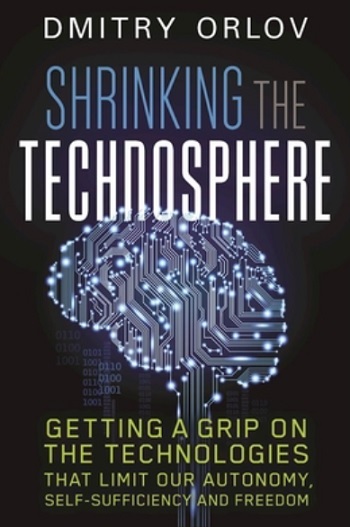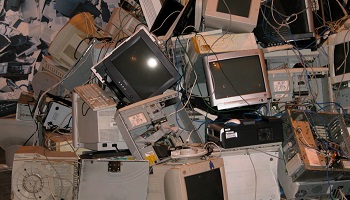Transhumanism & Artificial Intelligence
 |
 |
 |
 |
 |
 |
 |
Reviewing Shrinking the Technosphere
- Dmitry Orlov critiques modern technology for shifting from empowering humans to controlling them, leading to overreliance on machines and a disconnection from nature.
- Orlov examines the evolution of technology from simple tools to complex systems, arguing that while early technologies enhanced human capabilities, advancements have prioritized corporate profits over personal well-being and environmental health.
- He highlights the addictive nature of digital devices, comparing it to substance abuse and emphasizing the negative effects on personality and meaningful engagement with the world.
- Orlov proposes “naturelike technologies” that align with traditional practices and emphasize self-sufficiency and environmental stewardship, aiming to create a balanced relationship with technology that prioritizes well-being and sustainability.
- Through the “harm-benefit analysis” and practical advice on reducing technological dependence, Orlov encourages readers to rethink their values and work toward a society that prioritizes well-being, sustainability and freedom over efficiency and profit.

Dmitry Orlov's new book challenging technological assumptions
Orlov begins by tracing the evolution of technology from simple tools that enhanced human capability to complex systems that now dominate our lives. He argues that early technologies, like a carpenter’s tools or a farmer’s plow, served as extensions of the human body and mind, amplifying our abilities without overshadowing them. However, as technology advanced, it transitioned from empowering humans to controlling nature, leading to an overreliance on machines and a growing disconnection from the natural world.
“Why have we allowed technology to shift from being our servant to our master?” Orlov asks, urging readers to reflect on the unintended consequences of progress. While conveniences like air travel and microwave ovens have undoubtedly improved our lives, Orlov contends that they come at a steep price. The pursuit of efficiency, he argues, often prioritizes corporate profits over personal well-being, leading to job displacement and economic dependency.
Orlov doesn’t shy away from the psychological impact of technology. He likens our addiction to digital devices to substance abuse, highlighting the withdrawal symptoms many experience when disconnected. This dependency, he suggests, distorts our personalities and erodes our ability to engage with the world in meaningful ways.

A more natural life vs.
the technological domination of the metropolis
A key component of Orlov’s argument is the “harm-benefit analysis,” a framework for evaluating technology based on its potential harm and benefit. This analysis encourages us to prioritize technologies that align with our values and cause the least harm. For instance, Orlov suggests that while nuclear power and genetic engineering may offer benefits, their unlimited risks warrant their elimination. On the other hand, solar panels, though beneficial, come with significant drawbacks that need careful consideration.
“Ultimately, the goal is to create a society that values well-being, sustainability and freedom over efficiency and profit,” Orlov explains. This perspective challenges the conventional notion of efficiency, which he argues is often a euphemism for corporate profitability and invites readers to rethink what they value and how they define success.

A need to cut back on technological waste, all produced in the name of ‘efficiency’
“By working together and supporting each other, we can create a more resilient and sustainable future,” Orlov says. His vision is not just about surviving but thriving in a post-technological world, where we live in harmony with nature and reclaim our autonomy, self-sufficiency and freedom.
Shrinking the Technosphere is more than just a book; it is a call to action. It challenges readers to rethink their relationship with technology and consider the long-term consequences of their choices. As we face the challenges of climate change, resource depletion and social inequality, Orlov’s insights offer a roadmap for a more sustainable, equitable and fulfilling future.
Read more articles by Belle Carter here.

Posted April 4, 2025
______________________
______________________
 Volume I |
 Volume II |
 Volume III |
 Volume IV |
 Volume V |
 Volume VI |
 Volume VII |
 Volume VIII |
 Volume IX |
 Volume X |
 Volume XI |
 Special Edition |


